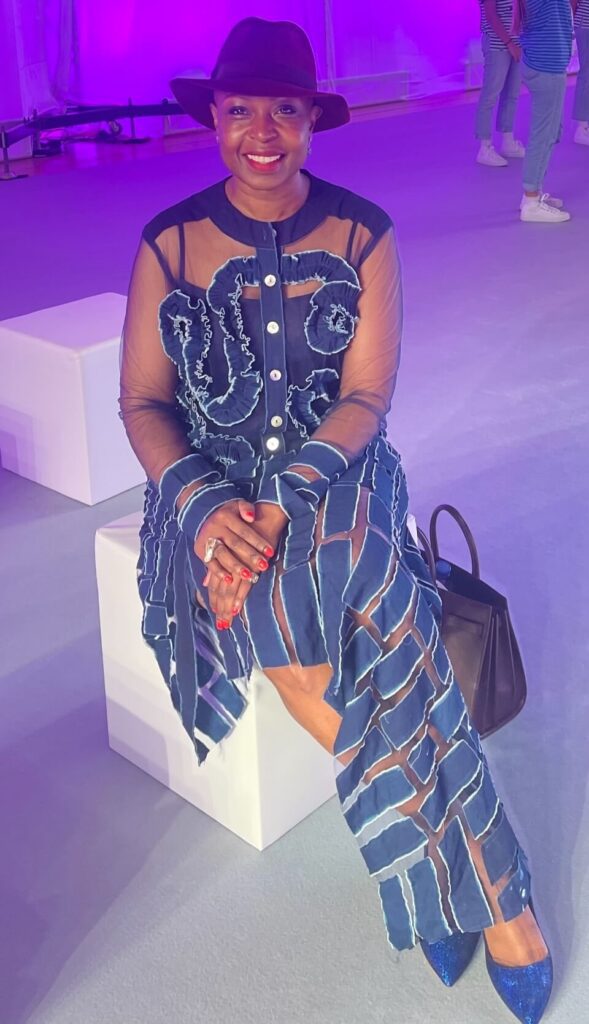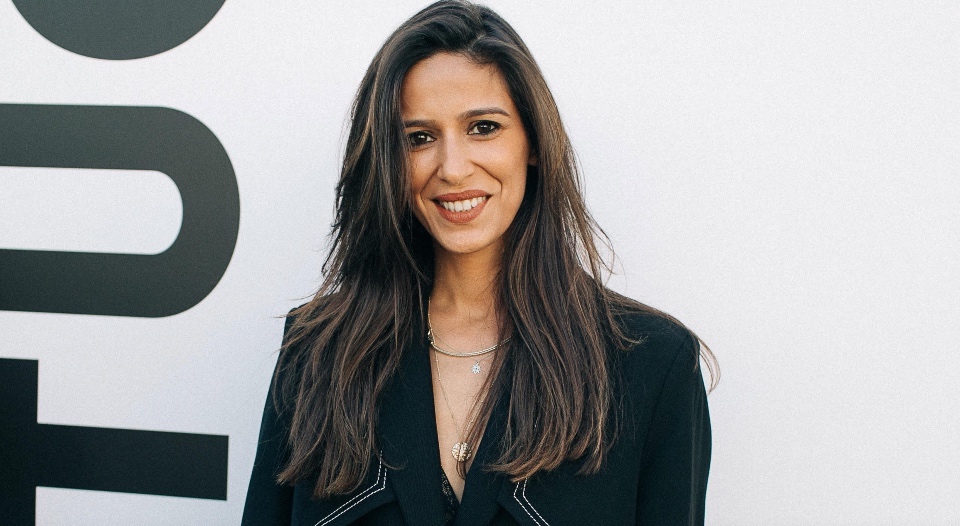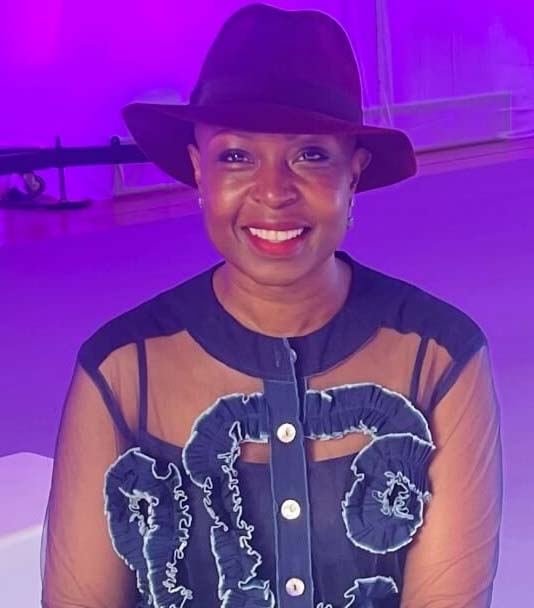With Spring comes beginnings — new leaves, new experiences and in fashion, new collections. Following AMAKA’s coverage of the Spring/Summer edition of Portugal Fashion Week last year, we are excited to once again be bringing you insight into this landmark collaboration between Afreximbank’s CANEX (Creative Africa Nexus) program and Portugal Fashion Week to platform the creativity of African designers. Leading up to the events starting March 16th, we talked to the Project Director of Portugal Fashion Week, Mónica Neto and CANEX Project Lead, Lulu Shabell, about the origins of this initiative and what to expect this time around.

Read on to understand more about the business of African fashion and the work being done to see more brands in the international market, and increase the presence of local design infrastructure.
AMAKA: Monica, you’ve worked with Portugal Fashion since 2007, first as Communications Manager and for the past four years now [as] Project Director — how have you seen fashion week changed over time?
Neto: It’s been an incredible journey and an evolution! Portugal Fashion is much more than a fashion week with two events per year. Today, we are a platform for the internationalisation and promotion of Portuguese fashion in an integrated way. We work together with the best fashion weeks in the world to promote design and ‘made in’ Portugal. And today we have the capacity to make a difference from Porto. Diversity, network, sustainability, cultural and productive heritage, and digital strength are the pillars of this evolution.
AMAKA: And Lulu, could you please tell me more about your history with Portugal Fashion and the Lulu Bell group’s partnership with it?
Shabell: I would call it fate or luck! But we know that luck is what happens when preparation meets opportunity. It is no secret that I love African fashion and had been working on an idea on how best to build and sustain African fashion businesses for a while. During this time, a friend introduced me to Portugal fashion, a platform that, after 25 years in the business, was keen to build longer bridges and offer a different perspective to their offering that already includes a rich heritage of production and textile manufacturing. A collaboration was inevitable, and it is through the Creative Africa Nexus (CANEX) Programme of the Afreximbank that the partnership took form and what you now see as CANEX Presents Africa at Portugal Fashion was born.
AMAKA in Partnership with Portugal Fashion for AW/22
AMAKA: This will be the 2nd edition of CANEX Presents Africa @Portugal Fashion, what do you think the importance of such a program is?
Neto: It’s important to consolidate the idea that was passed through during the 1st edition, with more audience and more opinion makers. Having African designers in Portugal Fashion is an opportunity to show to Portuguese and international press that there exists a creative community and well-made clothes in Africa, and I think it’s one of the best things we can take from this experience. Portugal Fashion has know-how and network, it is a global platform and provides designers supported by Canex a launch pad. The program includes mentoring, liaison with the industry, promotion with buyers and also fashion shows. More than an experience, it is a program that trains designers and provides them with concrete opportunities.
Shabell: It’s really around three pillars. How do we, first of all, tell our story? For that we need exposure on a global platform to narrate it. Critical to this, is how we reinforce the business behind fashion to make such a story compelling. As you know, the business of fashion is still in its nascent stages on the continent. We are full of creativity, but at the same time, there are very few brands that are sustainable businesses. So how do we improve that? And third, how do we find opportunities to export our products to international markets? The Portugal Fashion platform affords us with answers to all three questions. Through the runway shows we are able to tell the world who we are. With the partnership, we can leverage the expertise and technical-know how of Portugal to build the textile value chains in Africa to support the business of fashion, while our bespoke accelerator program supports capacity development and facilitates greater access to international markets for the African Designers.
AMAKA: How has the reception been for these designers and their work? Can you describe the impact?
Neto: The Portuguese community is, and always was, very open to new experiences, so having the possibility to show the work of many African designers was a really good experience and created a good impact in the fashion community. The happiness presented in the clothes, the positive vibe on the runway, the colours, the fabrics, the patterns… all of this small (but important!) differences from the Portuguese designers are always a good way of creating the impact that helps people to keep in mind what they’ve witnessed in “the first row”.
AMAKA: Lulu, you mentioned the end goal being building the infrastructure to support designers on the continent. How do you feel that the industry needs to change for this to be realised?
Shabell: According to WEF, over 140 million youth face unemployment today. To address this issue, I think we need to shift the focus from job finding to youth creating viable opportunities for themselves. Entrepreneurship and innovation will be key to unlock these opportunities. We also know creativity is abundant to us, in fact it is touted as the new crude oil, and can play a pivotal role in the economic and social development of this critical population. What we need is a concerted effort to find ways to formalise this sector. Research and data collection to support policy and attract investment in the cultural and creative industries is one first step. In fashion, what would be critical is the establishment of regional ecosystems or industrial parks that feed into the sector’s value chain from cotton farming all the way to a garment hanging on a rail in Selfridges. It still baffles me that it is cheaper to import cotton from India to Tanzania than it is to get it from Mali, and we’re on the same continent!

AMAKA: How do you hope Portugal Fashion Week’s collaboration with African designers will look like going forward?
Neto: We hope that new opportunities come for new designers, new business development, maybe some production companies will be able to move to some countries in Africa, creating jobs and knowledge. For that we should keep focus on the hard work we’ve been doing, hoping that this partnership should keep active for many more years to come.
Shabell: We have 20 designers from 14 different countries from Africa, the diaspora and the Caribbean, and many of them don’t know each other. So, they also have a chance to meet and create synergies within themselves and through the platform – gain exposure, benefit from capacity development via our accelerator programme and industry linkages, as well as gain access to international distribution channels which ultimately improve their businesses and the economic development of Africa as a whole.Beyond this, I would like us to forge more strategic partnerships at international and continental level, with different stakeholders of the creative Industries, that would allow us to build the much-needed ecosystems and centres of excellence required for the African fashion industry to thrive.
AMAKA:What are you looking forward to in this March 2022 Edition?
Neto: We look forward to seeing and feeling the same vibe and energy we felt last year. And I think that should be the main focus, because fashion is supposed to be fun and magical, but always maintaining responsibility and commitment to the problems of society and the world. We will have, more or less, 30 shows, and each one of them should be used to spread a message. A message that can go straight to the audience’s heart, mind and soul.
Shabell: With COVID restrictions easing out, we are hoping to see a lot more people come and participate and enjoy the shows. This year, we have a buyer’s workshop, where we are bringing together international buyers, investors, industry experts, press and the designers to discuss the evolving demands of global markets and how best to harness opportunities for African designers to access international distribution channels. I am very excited about the outcome of these conversations, as they will inform the roadmap for our success.
| SOURCE: Amaka.studio |

